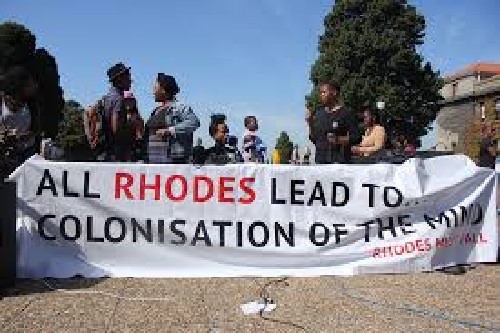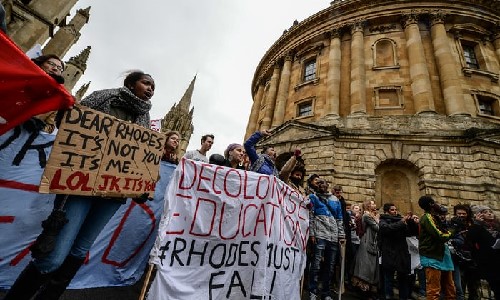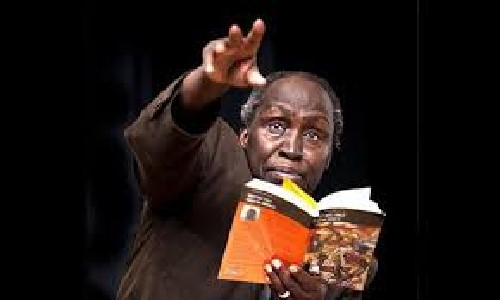Decolonizing the mind, Casper Andersen
In recent years contestations around European colonial heritage and legacies have been voiced around calls “to decolonize” institutions, public spaces, curricula and forms of knowledge. To decolonize has different meanings, but the underlying assumption is that the effects of colonialism on the cultures of the colonized have been profound, negative and enduring. Decolonization, therefore, is not merely (or indeed primarily) an event that took place when and where formal colonial rule came to an end, but rather a process of challenging the cultural and epistemic legacies of colonialism in broader fields of history, aesthetics and culture.
The ideas and social movements that have driven the calls to decolonize have originated outside Europe and, from there, found their way into public arenas and academic discourse within Europe. And they have a long history. Mahatma Gandhi’s insistence that real independence required the rejection of Western universalist claims and Walter Rodney’s indictment that colonialism was a one-armed bandit shared, for example, with Edward Said’s critique of orientalism, the idea that decolonization and the challenge to the alleged universality of Western epistemologies were intimately connected concerns. The most prominent recent example may be the Rhodes Must Fall Movement that began with student protests at the University of Cape Town in March 2015, with demands to decolonize higher education in South Africa. From Cape Town the movement spread to other campuses and cities outside and within Europe, notably the University of Oxford in Britain. Despite important differences in social and political contexts, the Rhodes Must Fall Movement in both Cape Town and Oxford gathered momentum around a call to decolonize that meant at least three things: First, changing or removing iconography, monuments and other material legacies of colonialism in and around the universities, notably the statues of the British imperialist and colonial politician Cecil John Rhodes (1953–1902); second, a call for more black South African academics (in the case of UCT) and more racial diversity (in the case of Oxford); and third, the inclusion of more non-Western authors, approaches and topics in order to decolonize curricula and allow a broader representation of epistemologies (Knudsen & Andersen 2018) (Ill. 1 and Ill. 2).


Contestations over the same issues – material legacies of colonialism, discriminatory practices and knowledge diversification – have also been central to demands to decolonize voices in other Europeans cities in recent years, including Amsterdam and Copenhagen.
Ngugi’s Decolonizing the mind
The intellectual history of the calls to decolonize culture and history is long and broad. In the twentieth century alone, strands of post-colonial thought, intellectual movements like Negritude, alliances among the non-Aligned, and a wide range of individual citizens, artists and academics have taken part in debates that have spanned the globe (Jansen and Osterhammel 2015, Chapter 6).
Important theoretical contributions to the “decolonizing turn” have come from decolonial thinking and practice employed and promoted by a group of South and Central American thinkers, including Walter Mignolo, Enrique Dussel, Anibal Quijano and Ramon Grosfoguel, whose refined critiques of coloniality have pointed out news ways of construing the relations between south and north in both political and epistemological terms. A connected development has also been notable among intellectuals in different parts of Africa, beginning in the wake of the end of formal colonial rule. A key contribution, which remains influential among activists and scholars in many parts of Europe and Africa today, is that of Kenyan novelist and literary theorist Ngúgí wa Thiong’o and his Decolonizing the Mind from 1981. In this short book, Ngúgí asserts that colonialism’s “most important area of domination was the mental universe of the colonised, the control through culture, of how people perceived themselves and their relationship to the world” (Ngugi 1981, 17). Colonialism detonated a “cultural bomb” that almost annihilated people’s belief in their language, heritage and environment and made them regard their own cultural background as “a wasteland of non-achievement” that had to be left behind as quickly as possible (Ngugi 1981, 3). Western cultural expressions and Western ways of knowing became and remain the benchmark, Ngúgí claims, against which all other traditions are to be measured and ranked. These were models that the colonized could strive for but never achieve because of their alleged cultural and racial inferiority that had been sanctioned by the very same Western traditions of knowledge.
The colonized mind had to be decolonized. For Ngúgí this meant giving up the language of the colonizer in his own writings and a struggle to change an educational system that gave precedence to Western traditions at the expense of all others. Above all, to decolonize was (and remains) to Ngúgi a search for “a liberating perspective” that aims to find new ways of seeing one’s place in the world through new forms of unity among people of African descent (Ngugi 2009). For Ngúgí, decolonizing the mind means a process to end a false universalism in the guise of “Westernized” canons that attribute truth only to Western forms of knowledge production but without succumbing to a relativism in which all perspectives are equally valid. As Mbembe has asserted, in Ngugi’s terms, “’decolonization’ is about rejecting the assumption that the modern West is the central root of Africa’s consciousness and cultural heritage. It is about rejecting the notion that Africa is merely an extension of the West” (Mbembe 2015) (Ill. 3).

Arguably, Ngúgí has one foot in a tradition that essentializes African knowledge and aims to replace European knowledge, and another foot in a tradition that subscribes to a more open notion of knowledge and seeks a continued dialogue between the global north and south in the engagement with the entangled colonial past and decolonial present. This fundamental tension is key to the calls to decolonize that ECHOES engages with. Concretely, this means focusing on and giving voice to new actors and other practices that have been marginalized by Western epistemology, but without the essentialization of a nostalgic traditionalism. For Mbembe and also for de Sousa Santos, for example, decoloniality constitutes a horizontal strategy of openness to dialogue among different epistemic traditions. This does not abandon a notion of a universal knowledge, but rather instals “pluriverse” epistemologies in the common world that also enable dialogue when dealing with the troubling and lingering legacies of colonialism.
From post-colonial act to de-colonial process
The calls to decolonize cover a spectrum from the philosophical and epistemological to the institutional and specific. On the philosophical level, the calls to decolonize attack the “epistemic coloniality” of hegemonic Western ways of knowing which relegate other ways of knowing to the margins by attributing truth and value only to traditions which, in Cartesian fashion, claim the detachment of the known from the knower. On the institutional level, the call to decolonize is a demand for change, particularly in higher education. In the African Leadership University (ALU) – to take one example – this involves commitments such as the exclusive use of open source material, the inclusion of language beyond English, programmes to ensure equality in student mobility, and developing collaborative modes of teaching and research (Auerbach 2017). A crucial point in the calls to decolonize is that philosophical and epistemological critique has to led to institutional and pollical change.
Importantly, the agenda to challenge colonial legacies and the alleged universality of Western knowledge production have also been central to post-colonial theories including, for example, Chakrabarti’s influential insistence on the need to provincialize European thought, traditions and epistemologies. What seem to be more prominent in the calls to decolonize in the South American and African tradition is the attention to action – to artistic interventions and citizen involvement. Language is important here: You cannot post-colonize but you can try to decolonize public spaces, academic institutions and modes of thinking. Certainly, it is notable how new alliances around the call to decolonize are being made between artists, citizens and academics – and between formal and informal institutions – in their engagements with the legacies and heritage of colonialism.
For ECHOES a key task is the attentiveness to the different meanings and strategies that produce – and which are produced – in the calls to decolonize currently voiced in cities inside and outside Europe by heterogenous groupings working in more or less formalized relationships with heritage institutions and in connective grass roots formations.
References:
Auerbach, Jess, (2017). ‘What a new university in Africa is doing to decolonize social science’, The conversation 13 May, Accessed 11 June at https://theconversation.com/what-a-new-university-in-africa-is-doing-to-decolonise-social-sciences-77181
Jansen, Jan and Osterhammel Jürgen (2017), Decolonization. A short history. Princeton: Princeton University Press.
Knudsen, Britta Timm and Andersen, Casper (2018), ‘Affective politics and colonial heritage: Rhodes Must Fall at UCT and Oxford, International Journal of Heritage Studies DOI: 10.1080/13527258.2018.1481134
Mbembe, Achille Joseph (20015), ‘Decolonising Knowledge and the Question of the Archive’, Public Wits Institute for Social and Economic Research (WISER). Accessed 11 June 2018 at: https://wiser.wits.ac.za/system/files/Achille%20Mbembe%20-%20Decolonizing%20Knowledge%20and%20the%20Question%20of%20the%20Archive.pdf
Ngúgí, wa Thiong’o (1981). Decolonizing the mind. The politics of language in African literature. Oxford: James Curry.
Ngúgi, wa Thiong’o (2009). Something torn and something new. An African Renaissance. New York: Basic Civitas.
Casper Andersen is Associate Professor at the School of Culture and Society, Aarhus University, Denmark
To cite this text:
Andersen, Casper (2018), Decolonizing the mind. [online] ECHOES: European Colonial Heritage Modalities in Entangled Cities. Available at: http://projectechoes.eu/keywords [Accessed XX.XX.XXXX].
